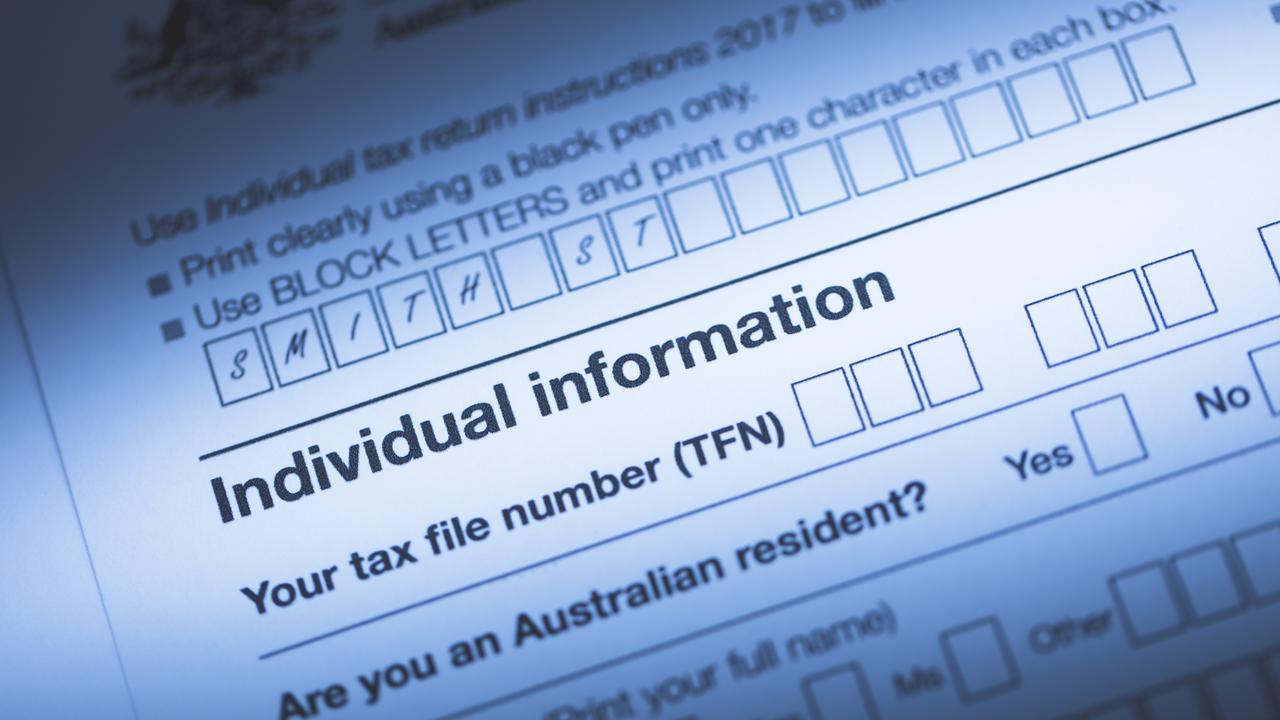Why your uni degree could cost you thousands this year
Experts say one big mistake leaves taxpayers shocked when they receive their tax return. Here’s how to stop it from happening.
When you start a new job, you’re inundated with paperwork — but leaving one small box unticked could result in a nasty surprise bill.
Department of Education and Training figures reveal 2.9 million Australians had outstanding Higher Education Loan Program (HELP, formerly HECS) debts in 2017-18.
That’s a significant jump from the 2.7 million who had a HELP debt the year prior — and as more and more of us turn to higher education, that statistic is only likely to grow in future.
But according to Ben Johnston from leading Sydney accounting firm Willett Johnston Partners, many employees get caught out by their HELP debt by failing to declare it when they start a new job.
RELATED: Big tax mistake Aussies are making
RELATED: Tax office’s 2019 hit list revealed
When you start a new role, you should always let your employer know you have a HECS-HELP debt by ticking that box on your Tax Declaration Form.
Your employer will then know to set aside additional tax from each pay cycle to cover your estimated debt based on your income — but if they’re not aware of the debt, you’ll have to pay the repayment rate for your income threshold.
Mr Johnston said that one tiny mistake had left many of his clients “in tears” over the years.
“A lot of people fail or forget to tell their employer when they have a HELP debt, and when they earn over the threshold, they’re left owing $2000 or $4000 to the Australian Taxation Office because they haven’t had that extra tax deducted through the year,” he told news.com.au.
Mr Johnston said the Government kept “lowering and lowering” the HECS-HELP repayment threshold to “catch more people out”.
“HELP debt in this country is compounding at a rate of knots, and the Government is petrified by how much it is ballooning, so they keep lowering the threshold to claw some back from taxpayers,” he said.
For example, from July 1, 2019, the new minimum HELP repayment threshold will be $45,881 with a 1 per cent repayment rate, down from $51,957 in 2018-19.
But Mr Johnston said it was just one of many common tax-time mistakes Aussies tended to make.

WORK EXPENSES
Many taxpayers also get confused by the term “tax deductible”, which means they could be left out of pocket.
“So many (clients) focus on tax deductions as if it’s a good thing, but they often don’t understand they’re only recouping a proportion of the money they’re out of pocket for,” Mr Johnston said.
“For example, if your regular work doesn’t provide you with a phone and you’re spending $1000 running yours, if you’re earning between $90,000 and $180,000 you’re in the 39 per cent tax bracket, so out of that $1000, you will only get back $390.
“It’s the same when people go out and buy tools and couldn’t be bothered to chase up being reimbursed at work because they think they’ll get it back on tax — but they can only recoup a proportion of that, so it’s always better if work pays because then you get 100 per cent back.
“It’s a problem caused by the terminology — if people hear ‘tax deductible’ they misinterpret it as 100 per cent refundable, but it’s definitely not.”
SUPER
Mr Johnston said many Aussies also failed to realise how much they could end up saving by adding to their superannuation.
“If a 23-year-old puts an extra $20, $30 or $40 a week into their super, over their lifetime it will literally turn into a couple hundred thousand dollars difference in retirement — plus, they’ll be saving on tax along the way,” he said.

VEHICLE USE
Motor vehicle use is another area that tends to confuse people at tax time.
“If you have two jobs and you drive from one job to the other, you can claim those kilometres directly — the same as when you’re studying at TAFE or uni in a course directly related to your work, you can claim a deduction on travel between uni and work,” Mr Johnston explained.
“And generally, travelling from home to work isn’t deductible — but if you’re carrying bulky tools and transporting those items, it can be.”
PRIVATE HEALTH
Mr Johnston also urged Australians to look into private health insurance to avoid being hit by the Medicare Levy Surcharge (MLS).
Singles who earn more than $90,000 and families on more than $180,000 will be charged the MLS if they don’t have private health insurance, and the MLS rate of 1 per cent, 1.25 per cent or 1.5 per cent is levied on your taxable income, total reportable fringe benefits and any amount on which family trust distribution tax has been paid.
Mr Johnston warned people without private health insurance to be “vigilant”.
“People don’t understand that every taxpayer in Australia pays a 2 per cent Medicare levy — but if you’re not in a private health fund and if you earn over the threshold, the rate goes up from 2 per cent to up to 3.5 per cent depending on income,” he said.
“A lot of people think if they don’t have private health insurance they don’t pay Medicare, but that’s not true — if you have private health, you avoid the surcharge.”
Continue the conversation @carey_alexis | alexis.carey@news.com.au




